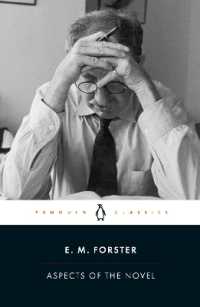Full Description
The Taiping Civil War (1851-1864) was one of the most destructive wars in Chinese history, with the death toll estimated between twenty and thirty million. What visions did survivors have for restoring their fractured society once the war ended? Katherine L. Alexander's Teaching and Transformation in Popular Confucian Literature of the Late Qing approaches these questions through literature by examining the works of evangelical Confucian teacher Yu Zhi (1809-1874), who gave a voice to the zealous side of conservative Confucian reform efforts before, during, and after the Taiping War. His works offer radical visions of a world that could be restored through collective effort and goodness, while also revealing the shifting nature of power and the cracks in Qing society.
Yu's works complicate the picture of socio-moral reform, particularly the Confucian mission of jiaohua (teaching and transformation). Though he viewed the disasters of the late Qing as the natural consequence of jiaohua's failure to compete against socially disruptive media, such as vernacular fiction and theatrical productions, he also wanted reformers to engage closely with these genres. Yu became a vocal advocate of teaching with moral vernacular literature that he believed met commoners at their level. He emphasized the hope that by writing, printing, and performing such texts, every member of his audience could be transformed into teachers themselves, restoring society from the bottom up.
Contents
Table of Contents
List of Illustrations
Acknowledgements
Conventions
Introduction: Words for When the World Falls Apart
Ch. 1: Confucian Censorship and the Appropriation of Vernacular Literature
Ch. 2: Transformative Teaching and the Power of Morality Textbooks
Ch. 3: Salvation from Disaster via Print and Performance
Ch. 4: Domesticity and Redemption: Homemaking To Avert Calamities
Ch. 5: Female Audiences, Popular Morality Literature, and the Pitfalls of Incomprehension
Conclusion: Restoring and Remaking a Broken World
Bibliography






